SUP
Why You Shouldn't Stand Up Paddle (SUP)
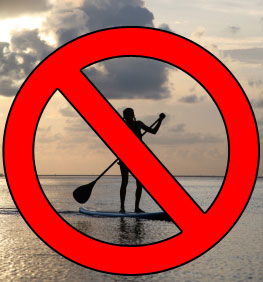 SUPs have been a much debated wave riding device over the past few years. While the emerging sport is growing in popularity, the ethics of riding them has come into question. This article takes a look at some of the reasons why a SUP might not be a good fit for you or for a particular day. A true waterman can enjoy the ocean in a variety of ways, but they will understand how to be selective as well.
SUPs have been a much debated wave riding device over the past few years. While the emerging sport is growing in popularity, the ethics of riding them has come into question. This article takes a look at some of the reasons why a SUP might not be a good fit for you or for a particular day. A true waterman can enjoy the ocean in a variety of ways, but they will understand how to be selective as well.
Why You Shouldn't Stand Up Paddle
1. Is It Surfing or Something Else?: I will stress that I love the ocean and all of the ways to enjoy it, but one question that frequently arises about SUPs is whether or not riding them is surfing. It certainly has the appeal of surfing, but sometimes it can be a be a bit more like kayaking.
Part of the enjoyment of surfing is the whole experience: duck diving through the waves, sitting on the board waiting, striking up conversations, racing towards a peak and then riding. In fact, 95% of the time we spend surfing, we are not actually riding waves, so is the fact that SUPs ride waves enough of a similarity to group them with surfboards? If you like sitting in the lineup, ducking through waves etc, the constant workout and standing required of a SUP might not be what you are looking for.
2. The Paddle Predicament: Watch a new SUPer and you will see that once they catch a wave their paddle turns into a piece of luggage they must carry. An experienced SUPer will know how to use it in the face of the wave to make new turns possible. If the idea of using a paddle effectively isn't appealing to you, maybe what you're really looking for is a big longboard.
3. They Are A Hassle To Transport: SUPs are big. They are also heavy and they take up a lot of space. If you have a 2 door Mazda, you're going to have a tough time getting your SUP to the beach. If you weigh less than 120lbs, you're going to have a tough time carrying it to some beaches. (Blacks!) If you have a truck, buy a red cloth, because a SUP is going to stick out far enough that you can get ticketed for carrying it without giving other drivers warning via that red cloth tied to the end of it. If you like the convenience of tossing a board in shotgun and jetting to the beach, SUPing will require a major adjustment.
4. The Tone Of The Lineup: There are beaches that you should not SUP at. Maybe this will change some day, but as of late 2010, you will get called out of the lineup of many beaches that are not SUP friendly. Its not your fault. What is new is often misunderstood and SUPing hasn't been around long enough that the average guy has had a mix of good and bad experiences to form a solid opinion.
There are some guys that can SUP anywhere. You will see pictures of SUPers at Teahupoo and the Wedge, but those guys can ride anything anywhere. They are skilled watermen that have earned the respect of others. SUPing is rare enough that you will stand out at most places. If your local lineup is not friendly and you would prefer to blend in, you might consider something else. Of course, if you're looking to fight the good fight and open doors for others... more power to you. We fully support trailblazers because there is freedom in diversity.
5. Injuries: This one might be a bit of a stretch but there have been numerous reports of SUPers breaking ankles due to their leashes. Like we mentioned before, SUPs are big. That is a lot of board to look out for. If it lands on you, that is going to hurt. If it gets caught in a wave that you're not on, it will drag you by your ankle. Tomb-stoning and going over the falls become a lot more dangerous with an 11' board. If the waves are decently sized, you might not want to have to manage that much foam & fiberglass.
Conclusion: There are plenty of reasons to ride one board or another. Hopefully after reading this you understand a little bit more about SUPs and some reasons why another board might be more appropriate at certain times. Be aware that SUPing is different than surfing, it introduces the paddle which is a new element with its own pros and cons. SUPs are big and can be difficult to manage for some. Finally, SUPing is still new and not everyone has warmed up to it yet, so be aware of this when you paddle out.
Read our article on the pros of SUPing: Why You Should SUP
Are there any other reasons you would leave your SUP at home on some days? Leave a comment below and let us know.


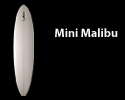
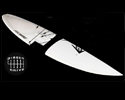


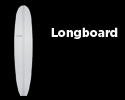



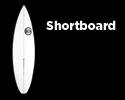


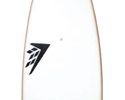
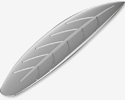
15 Comments